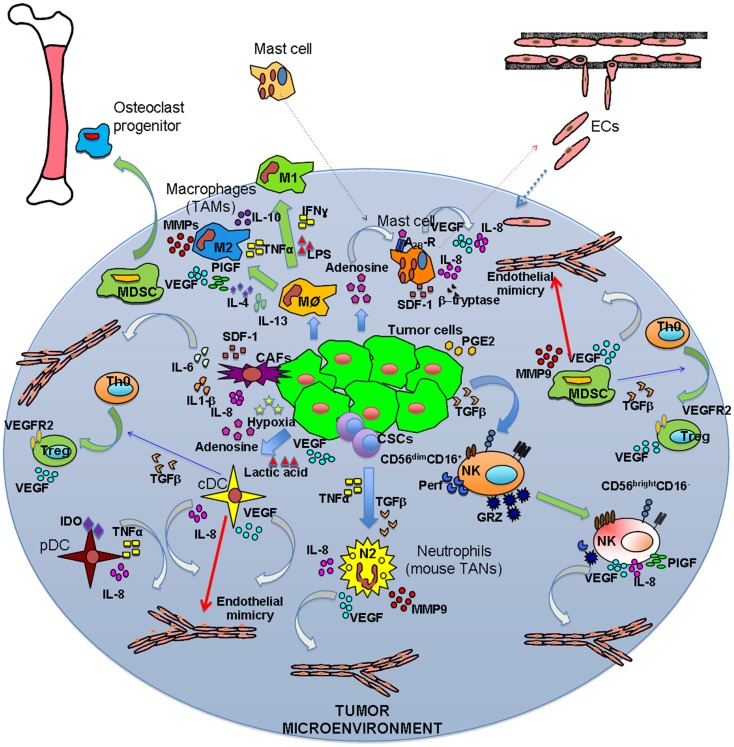Figure 1.
Inflammatory orchestration of tumor angiogenesis. Both solid and hematological malignancies are associated with an inflammatory state characterized by different innate and adaptive immune cells. These cells are able to play two different symphonies at the same: on one hand they can contribute to tumor suppression and eradication, on the other they play a key role in tumor insurgence and progression. The TUMIC produces several factors, including TGFβ, PGE2, VEGF, lactic acid, and adenosine, which contribute to polarization of immune cells toward a pro-tumor/pro-angiogenic phenotype. Polarization is not only mediated by tumor cell products, but also involves crosstalk between immune cells. Ag–Ab, antigen–antibody complexes; CSCs, cancer stem cells.

